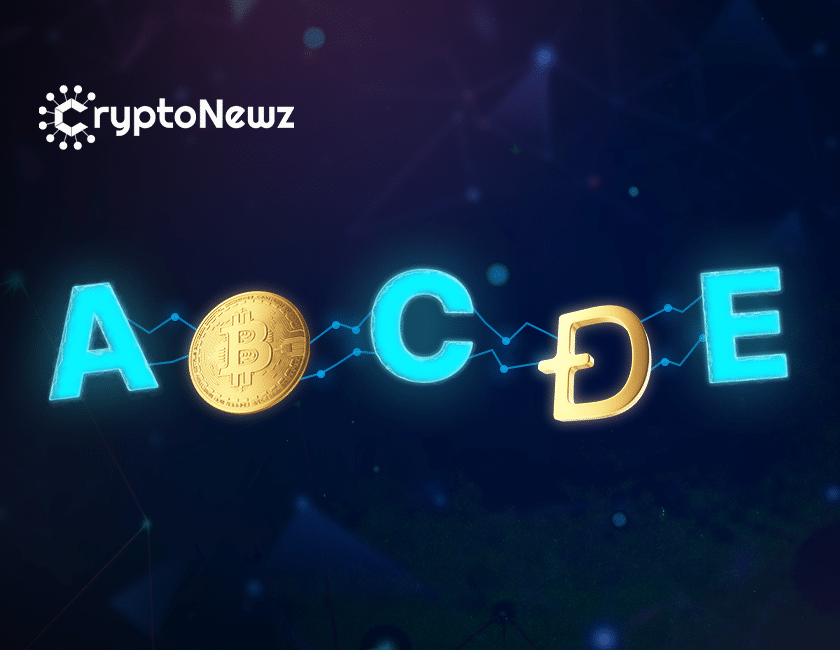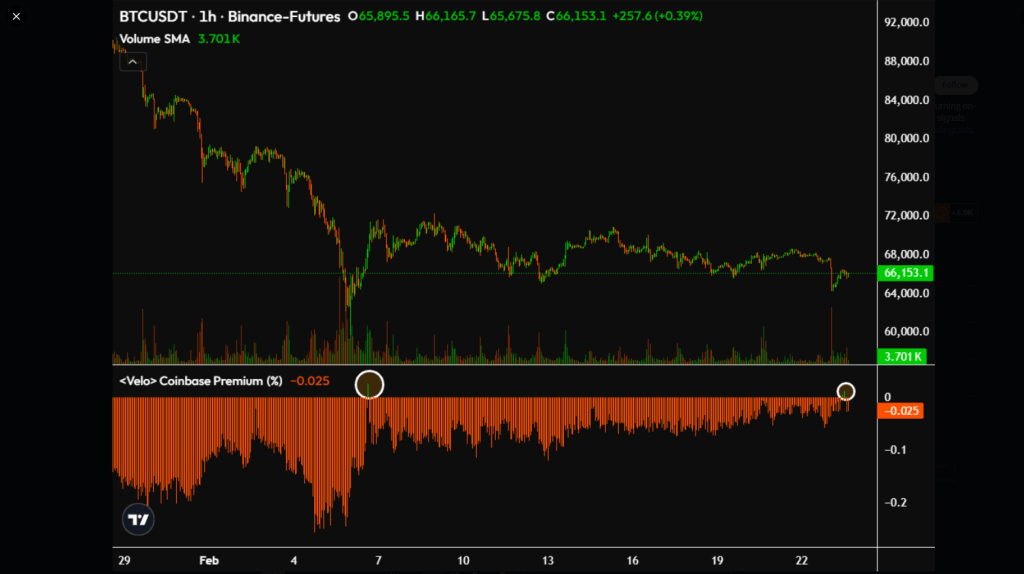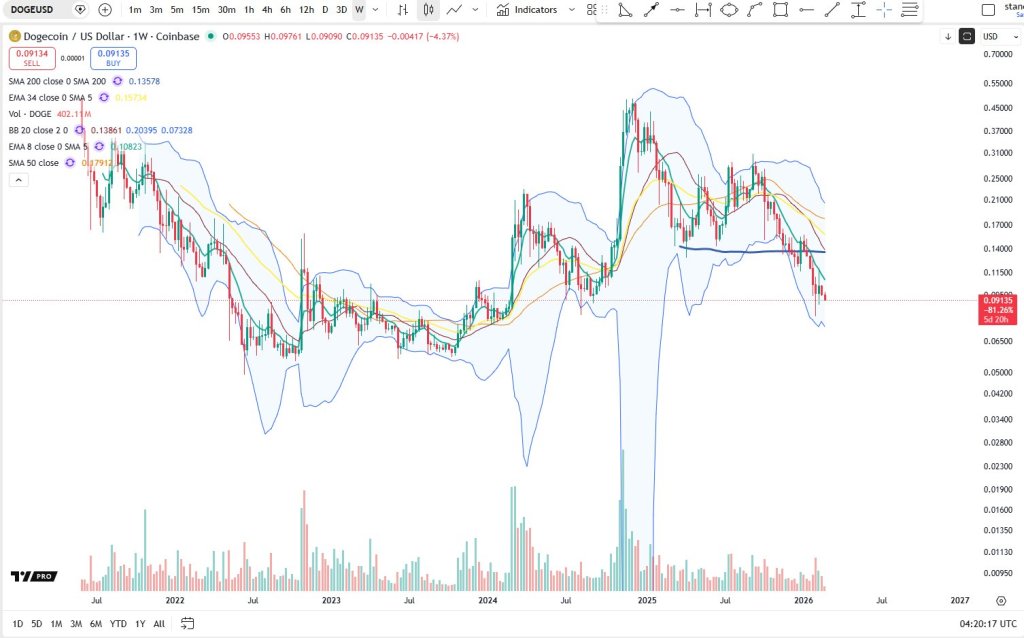
Your A-Z Crypto Glossary & Terms Dictionary
If you’re a crypto enthusiast or actively surrounded by Web3 tech, then you should get acquainted with these crypto glossaries. We’ve put together all of them for your quick reference. Check it out!
A
Address: A unique string of characters used to receive cryptocurrency.
Altcoin: Any cryptocurrency other than Bitcoin.
Airdrop: Free distribution of cryptocurrency to promote adoption.
Arbitrage: Buying cryptocurrency on one exchange and selling on another for profit.
ASIC (Application-Specific Integrated Circuit): Specialized hardware for cryptocurrency mining.
B
Bear Market: A market trend where prices are consistently falling.
Block: A package of transactions added to the blockchain.
Blockchain: A decentralized, immutable ledger of transactions.
Bull Market: A market trend where prices are consistently rising.
Burning: Permanently removing coins from circulation to reduce supply.
C
Coin: A digital currency with its own independent blockchain.
Consensus Mechanism: A process to validate transactions on the blockchain.
Cryptography: The technology used to secure blockchain transactions.
Custodial Wallet: A wallet where a third party controls private keys.
Cypherpunk: An advocate for cryptography and privacy in digital communication.
D
DAO (Decentralized Autonomous Organization): A blockchain-based organization without centralized control.
DeFi (Decentralized Finance): Financial services using blockchain technology without intermediaries.
DApp (Decentralized Application): An application running on a blockchain network.
Decentralization: Distributing power across a network instead of a central entity.
DYOR (Do Your Own Research): Encouragement to research before investing.
E
ERC-20: A standard for tokens on the Ethereum blockchain.
Exchange: A platform to buy, sell, or trade cryptocurrencies.
Ethereum: A blockchain network with smart contract functionality.
Exploit: A vulnerability in code used by hackers to steal funds.
EVM (Ethereum Virtual Machine): The runtime environment for Ethereum smart contracts.
F
Fiat Currency: Government-issued currency like USD or EUR.
Fork: A change or upgrade to a blockchain’s protocol.
Full Node: A computer that fully validates blockchain transactions.
G
Gas: A fee paid for executing transactions on the blockchain network.
Genesis Block: The first block in a blockchain.
Governance Token: A token giving holders voting rights in a blockchain network.
Gwei: A small denomination of Ether, used for gas fees.
H
Halving: A reduction in mining rewards, typically for Bitcoin.
Hard Fork: A blockchain split creating two separate chains.
Hash: A cryptographic function converting input data to a fixed output.
HODL (Hold On for Dear Life): A term encouraging long-term holding of cryptocurrency.
Hot Wallet: A cryptocurrency wallet connected to the internet.
I
ICO (Initial Coin Offering): A crowdfunding method for new crypto projects.
Immutable: A characteristic of blockchain data that cannot be altered.
Interoperability: The ability of different blockchains to communicate and work together.
L
Ledger: A record of all blockchain transactions.
Liquidity: The ease of buying or selling an asset without affecting its price.
Lightning Network: A second-layer solution for faster Bitcoin transactions.
M
Market Cap: The total value of a cryptocurrency, calculated as price × circulating supply.
Mining: The process of validating blockchain transactions and earning rewards.
Minting: The creation of new cryptocurrency tokens.
Mooning: A slang term for when a cryptocurrency’s price rapidly increases.
N
NFT (Non-Fungible Token): A unique digital asset representing ownership of content, art, or collectibles.
Node: A computer connected to a blockchain network that validates transactions.
O
Oracle: A service providing external data to smart contracts.
Over-the-Counter (OTC): Trading cryptocurrencies directly between two parties, outside of exchanges.
P
Paper Wallet: A physical document containing cryptocurrency keys.
Peer-to-Peer (P2P): Direct transactions between users without intermediaries.
Private Key: A secure code granting access to cryptocurrency holdings.
Proof of Stake (PoS): A consensus mechanism using staking to validate transactions.
Proof of Work (PoW): A consensus mechanism requiring computational power to validate transactions.
Public Key: A cryptographic code allowing others to send you cryptocurrency.
Q
Quantum Computing: A futuristic technology posing potential risks to blockchain security.
R
Rug Pull: A scam where developers abandon a project after taking investors’ funds.
ROI (Return on Investment): A measure of profitability in cryptocurrency investments.
S
Satoshi: The smallest unit of Bitcoin, named after its creator.
Scalability: The ability of a blockchain to handle increasing transactions.
Seed Phrase: A set of words used to recover a cryptocurrency wallet.
Sharding: A method of splitting a blockchain to increase efficiency.
Smart Contract: A self-executing contract with predefined conditions.
Stablecoin: A cryptocurrency pegged to a stable asset like USD.
T
Token: A digital asset built on an existing blockchain.
Tokenomics: The economic structure of a cryptocurrency.
TPS (Transactions Per Second): A measure of blockchain speed.
Trading Pair: Two cryptocurrencies that can be exchanged on a platform.
U
Utility Token: A token providing access to a product or service within a platform.
Uniswap: A popular decentralized exchange for Ethereum-based tokens.
V
Validator: A participant in Proof of Stake who verifies transactions.
Volatility: The degree of price fluctuation in cryptocurrency markets.
W
Wallet: A tool to store, send, and receive cryptocurrencies.
Wash Trading: A deceptive trading practice to artificially inflate volumes.
Whale: An individual or entity holding large amounts of cryptocurrency.
Whitepaper: A document outlining the purpose and technology of a cryptocurrency.
X
XRP: The cryptocurrency used by Ripple for cross-border payments.
Y
Yield Farming: Earning rewards by providing liquidity to DeFi protocols.
Z
Zero-Knowledge Proof (ZKP): A cryptographic method where one party proves a statement’s validity without revealing details.
Zero-Confirmation Transaction: A transaction not yet verified by the blockchain.
Zk-Rollup: A Layer 2 solution increasing transaction speed and scalability.





